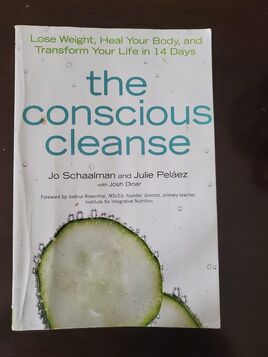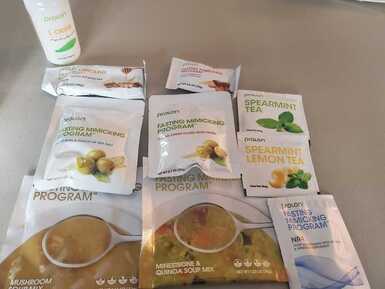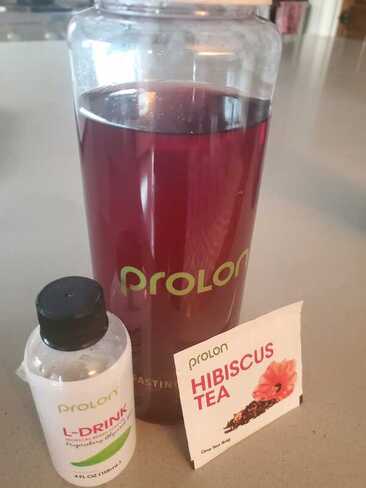
One of my favorite books, The Conscious Cleanse, says "Eat when you're hungry. When did this simple practice become so difficult? We're literally born knowing to eat when we're hungry and stop eating when we're not. It should be one of the most innante aspects of our existence. But for so many of us that's not how it's done. We've been trained--and in turn train our children--to eat by the clock, even if we had a huge meal just a few hours prior. We've even learned to "get hungry" based on the time of day. We eat empty calories, mindlessly. Mull that one over for a second: we consume that which we don't need, and often don't even want, without even thinking about it." (Schaalman and Pelaez). One of the benefits of consciously eating or consciously fasting is we become aware of our tendencies, behaviors, and proclivities. This program allows you to feel hunger again. Feeling hunger doesn't mean you will starve or suffer, it allows one to consider, listen and learn about what your body really needs. We also learn to slow down, to eat mindfully.
On Day 1 I was reminded how often I habitually bee-line to my Costco jar of mixed nuts and grab a handful! I do this intermittently between Pilates clients, during housework, or while scrolling through social media. Taking part in a fast causes me to re-evaluate my impulses and habits. Remember, the goal of ProLon is to mimic fasting, to mimic having no food for an extended period of time, giving your body the chance to rest, restore and renew. The benefit of ProLon (particularly for someone like me) is they have created a kit, through years of research that contains a proprietary blend of nutrients that bypasses what they describe as the "nutrient-sensing pathways" but still permits you to enjoy a variety of flavors and foods while reducing insulin and glucose fluctuations. Through the process, it also helps to reduce one's appetite and potentially reduce one's cravings. None of us want to be a slave to our cravings.
On Day 1 I was reminded how often I habitually bee-line to my Costco jar of mixed nuts and grab a handful! I do this intermittently between Pilates clients, during housework, or while scrolling through social media. Taking part in a fast causes me to re-evaluate my impulses and habits. Remember, the goal of ProLon is to mimic fasting, to mimic having no food for an extended period of time, giving your body the chance to rest, restore and renew. The benefit of ProLon (particularly for someone like me) is they have created a kit, through years of research that contains a proprietary blend of nutrients that bypasses what they describe as the "nutrient-sensing pathways" but still permits you to enjoy a variety of flavors and foods while reducing insulin and glucose fluctuations. Through the process, it also helps to reduce one's appetite and potentially reduce one's cravings. None of us want to be a slave to our cravings.

Thanks to a quality night's rest, Day 2 feels more purposeful and productive. I prepped the soups (dry mixes) in mason jars first early this morning so that they would soak in the dry spices and flavors before lunch and dinner. After a couple of Pilates clients, I considered grabbing the breakfast bar and eating quickly before going to the gym. But, I coached myself and made a glass of tea and sat at the table intent on savoring the flavors rather than just mindlessly inhaling the food which is often the case! Using ProLon, one is keenly aware that there are not grazing and snacking windows; it's minimal, but flavorful food, so best to take the time and enjoy it!

I did a light workout at the gym and listened to a fantastic Dr. Jason Fung interview on the School of Greatness podcast. I shared the link yesterday but will do so again. HIghly recommend this podcast even if you are not interested in intermittent fasting as he shares recent research, data, and useful tips for overall healthy living. Dr. Fung is an internal medicine doctor and a kidney specialist. He has witnessed first hand the horrible effects of Type II diabetes on the body's organs. For instance, poor blood flow to the extremities can lead to gangrene and the need for amputation. He uses the term "rots" to describe the effect Type II diabetes has on the kidneys leading to kidney disease. Bacteria love sugar which is why there is an increased risk of infection in those with pre-diabetes or diabetes. Diabetic retinopathy may lead to blindness from sugar damage to the eyes. Dr. Fung describes Type II diabetes as being essentially too much sugar in the body which builds up over the years and essentially overflows into the blood. As the blood sugar goes up, lab tests, including an A1C, may confirm a diagnosis of Type II diabetes. A shocking stat that Dr. Fung shares is nearly 50% of the US population may be pre-diabetic or have Type II diabetes. Two solutions to get rid of this excess sugar...either don't eat it or let your body burn it off. To do this he recommends a low carbohydrate diet &/or intermittent fasting. When you don't eat, nothing going in, you will start to burn off the sugar. He strongly expresses that Type II diabetes IS reversible and largely a dietary disease which means the treatment must also involve dietary changes. (This synopsis by the way is just the first 8 minutes of the podcast! I hope you will listen). He shares many positive examples of the benefits in his patient population when they make lifestyle changes that emphasize diet, nutrition and metabolism. He also reminds us that fasting has been around for thousands of years. He acknowledges that religion, whether Christian, Jewish, Muslim or otherwise have all emphasized regular social gathering (church), prayer (meditation), gratitude/thanksgiving, as well as fasting through the centuries. These are all pillars to what Dr. Fung considers to be vibrant, fruitful living. He is perplexed by those who consider fasting to be a strange new fad when it has actually been a part of the world for thousands of years. podcasts.apple.com/us/podcast/1031-the-science-of-intermittent-fasting-foods-to/id596047499?i=1000498096589
I look forward to sharing my experiences with you over the next couple of days. For now, it is a rainy, cold and dreary Wisconsin afternoon (the season of "sprinter") and my warm herbal tea is a welcomed companion. Thank you for reading and enjoy the weekend!
 RSS Feed
RSS Feed